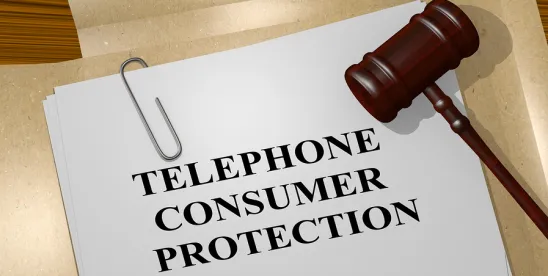In a big win for serial plaintiff Anton Ewing, a district court in California entered default judgement against DME Capital, LLC. (“DME”), awarding Ewing $68,480 in damages.
The Complaint in Ewing v. DME Capital, LLC., 2024 WL 4983150 (S.D. Ca. Apr. 17, 2024) sets forth allegations that DME called Ewing’s cell phone 11 times from August 2022 to April 2024 and texted him twice in January 2024. Ewing alleges he heard a “very clear ‘bubble popping’ type sound followed by a rather long pause before the artificial-voice prerecorded message began to play on the call.” Then, Ewing “was required to hit ‘1’ to be transferred to a live operator.” Ewing claims that on one occasion he was connected to a DME representative, Mitchell Ekdeshman, who admitted that he used “computer software that stores and automatically dials the phone numbers without any input from him.” Ekdeshmanalso allegedly revealed that DME records all of its solicitation calls.
Based on these communications, Ewing sued DME under the TCPA’s automatic telephone-dialing systems (“ATDS”) and National Do Not Call Registry (“NDNCR”) provisions, the California Invasion of Privacy Act (“CIPA”), and the California Consumer Legal Remedies Act (“CCLA”).
In the absence of any appearance or defense by DME, the Court found that factors guiding its discretion weighed largely in favor of granting Ewing default judgement. The Court took into consideration (1) the possibility of prejudice to the plaintiff, (2) the merits of plaintiff’s substantive claim, (3) the sufficiency of the complaint, (4) the sum of money at stake, (5) the possibility of a dispute concerning material facts, (6) whether excusable neglect caused the default, and (7) the strong policy favoring decisions on the merits.
Five of these factors, namely the prejudice to Ewing in the absence of any other recourse against a non-responsive defendant, the merits of Ewing’s claim as judged from the sufficiency of his complaint, the lack of dispute over material facts (as no one appeared from the defendant’s end to offer a dispute), and the issue of excusable neglect which favors default judgement where, as here, a defendant was properly served, were found to weigh in Ewing’s favor. The public-policy prong was the sole factor weighing against a default judgment and towards a decision on the merits.
As for the amount at stake, the Court noted that for three of the four causes of action (those under the TCPA and CIPA), Ewing requested only amounts expressly allowed by statute, so his prayer for damages was reasonable and favored default judgment. However, in awarding damages, the Court denied Ewing’s request for treble damages under the TCPA and instead awarded standard statutory damages of $500 per ATDS and NDNCR violation, amounting to $13,000. Similarly, the Court awarded Ewing statutory damages of $5,000 for each non consensually recorded call under the CIPA, amounting to $55,000. However, for his fourth cause of action under the CLRA — which provides for the recovery of actual damages, not statutory damages — the Court found Ewing’s request of $2,500 per call to be “excessive and unreasonable” in light of his failure to provide evidence of damages resulting from DME’s violations. Lastly, the Court awarded Ewing $480 in costs—$405 for filing fees and $75 for service-of-process fees.
Overall, an unexpectedly positive outcome for a plaintiff who has been under fire lately – see TESTING THE COURT’S PATIENCE: Anton Ewing and Freedom Forever Are Locked in Mortal Combat–Except They’re Not – TCPAWorld and “FORGIVE ME IF I DON’T LIKE YOU”: Anton Ewing Avoids Sanctions for Unprofessional Emails in TCPA Case–but Court Issues a Warning – TCPAWorld.




 />i
/>i

